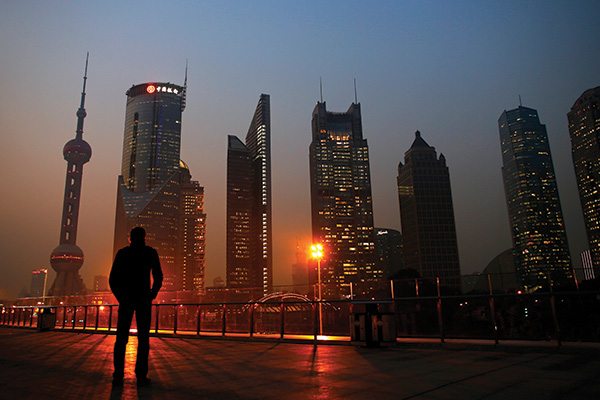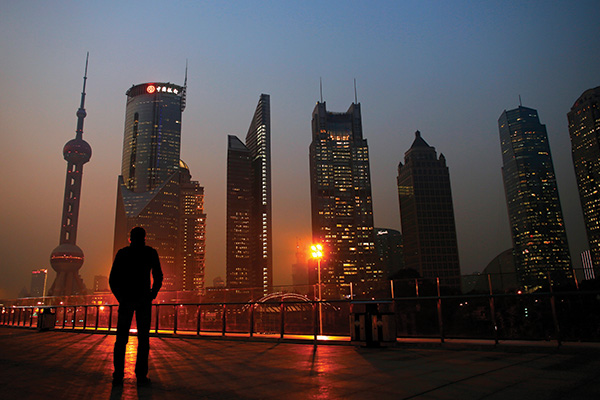
Skip to
The long-awaited updated version of the Anti-unfair Competition Law to be issued this year could be a game changer for the legal and business landscape in China. This is the first-ever revision since the law came into force in 1993 and experts see it as a move to stop unfair competition in the country.
“It has been 24 years since the law took effect and it cannot function effectively in curbing new ways of unfair competition emerging from the current rapid-developing economies,” says Chen Rong, partner at Han Kun Law Offices. “The law is relatively weak in that way and the revision is a necessary move.”
The revised draft was given a first reading at a preliminary bimonthly meeting of the National People’s Congress’ (NPC) Standing Committee in March. The draft under consideration is meant to provide a fair competition environment for business in the country.
Drafts of the new statute circulated previously have raised some eyebrows regarding issues such as new types of infringement behaviors. Unfair competition behavior on the Internet, in particular, has been added to the draft.
“Internet business is not a new term; however, back in 1993 when the law was issued, there were not that many business activities happening over the Internet and thus we cannot find detailed and particular articles and rules regulating unfair competition behavior on the Internet in the current edition,” says Chen.
This leads to an awkward situation – when dealing with Internet-related cases, judges usually have to refer to Article Two under the general principal of the current Anti-unfair Competition Law, which states that “operators shall abide by the principle of voluntariness, equality, fairness, honesty and good faith, and also adhere to established business ethics in their business transactions”
“It is quite uncommon to refer to the general principal of a law in judgment; it reflects the urgency of updating the law,” says Chen.
In the draft of the revision, there are four new rules related to governing acts of unfair competition in the field of Internet business, including using technological means to impede users' normal use of another business operator's network application services without the user's consent; inserting links in network application services provided by other business operators, causing forced target jumping; misleading, deceiving, or forcing users to modify, close, uninstall or irregularly use network application services lawfully provided by others; interfering with or disrupting the normal operation of other network application services lawfully provided by others, without permission or authorization.
Another important move is the clarification of the Anti-unfair Competition Law’s relationship with other laws, including the Anti-monopoly Law, Bidding Law, Price Law and so on.
For example, the draft excludes behaviors that fall within the regulation of the Anti-monopoly Law, including exclusive dealing by public utilities, abuse of administrative power, below-cost pricing and tying.
“As of the issuing of the Anti-unfair Competition Law, our country does not have regulations such as the Anti-monopoly Law, and the lawmakers tried to make it as comprehensive as possible so that it can cover most misconducts related to unfair competition. But the revision this time is the other way around. It aims to make clearer boundaries between different laws,” says Chen.
Huang Wei, partner at Tian Yuan Law Office, echoes this view and believes that a clearer framework is better for the enforcement of the law.
“Overlapping areas of regulation with other laws and rules lead to unclear enforcement entities. We see that sometimes one issue involves too many authorities, which is not efficient,’ says Huang.
Back to topGREATER PENALTY
The draft significantly lifts the penalty of the acts in violation of the law. The highest fine is RMB 200,000 in the current one while in the proposed revision the figure is RMB 3,000,000.
The way Huang sees it is that companies should catch up with the updated regulation and pay more attention to their compliance work.
“Business operators would suffer a hemorrhage if they are not well prepared for this,” says Huang. “In particular, Internet companies should get ready because with the new draft coming into effect, certain grey-area issues will now be more clearly regulated and there are certain lines they should not cross anymore. I also see it highly possible that authorities will further elaborate on some definitions and include more misconducts related to the Internet business.”
Compared to Western countries where laws in fair competition fields have developed for decades or even for more than a hundred years, China is behind in terms of fostering the regulatory environment. The country only saw its first related law, the Anti-unfair Competition Law, pass in 1993 and the Anti-monopoly Law in 2008. But legal experts see the country’s landscape of fair competition evolving at a rapid pace.
“Our experience in the fair competition practice area has accumulated over the years, and in some fields, for example intellectual property anti-monopoly, we’ve positioned ourselves at the front row. Cases like the fine issued to Qualcomm hit headlines in international media,” says Huang.
In 2015, the National Development and Reform Commission (NDRC) imposed a record-high fine of RMB 6.088 billion on Qualcomm Inc., a California-headquartered cellular chipmaker, for charging excessive royalties to Chinese licensees.
And in the past year, the three main antitrust regulators, the Ministry of Commerce, the NDRC and the State Administration For Industry & Commerce (SAIC), together imposed RMB 1.03 billion in fines in 2016. Some big names were among those that were punished, including Medtronic and Canon.
However, Huang sees that there is still room for improvement and much work is needed in the country.
One critical task is that laws like the Anti-monopoly Law and Anti-unfair Competition Law are quite short and many of the articles are very general and principal-oriented, which brings difficulties to actual enforcement.
“This also leads to differentiation in applications and standards by different authorities and in different provinces,” says Huang.
The lawyer calls for more supporting guidance documents, for example a guidance for vehicle anti-monopoly and intellectual property, along with related basic framework laws.
“We would see more detailed guides and that would not only give clearer instructions to authorities but also ease the pressure on companies as they would see the safe zone and minefield clearly,” he adds.
With the updated revision on the way, companies should pay attention to their compliance and be cautious of stepping into a minefield, which might in a way bring more work. However, it is also good news as they can use the new rules to protect their own business.
“There are always two sides of one coin,” Huang says. “While assisting our clients to better comply with the Anti-monopoly Law and Anti-unfair Competition Law, we also help the companies to better utilize the laws to protect their business from being violated by competitors.”
Back to top


